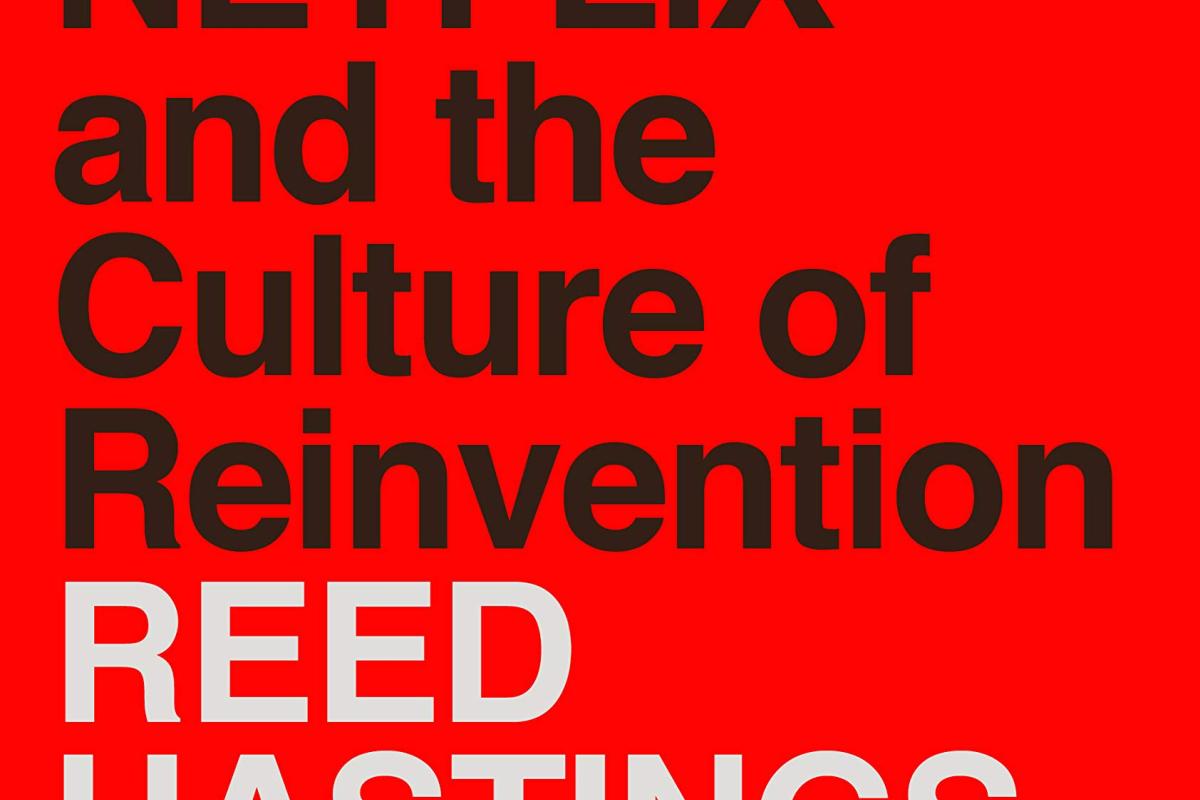Reed Hastings, the CEO of Netflix, has just published a book on their famous culture.
It’s better than most business books. But now I’m wondering: should it be filed under non-fiction or fiction?
I’m reading ‘No Rules Rules’ for the “Corner Table Book Club”, where we get together six times a year to read business and marketing books.
Why chose this book? Culture is underrated, but it’s also created. I still feel great affection and loyalty to one agency I worked in and am still having nightmares about another – 25 years later.
What can we learn from Netflix - and perhaps create in our department or company if we want to grow like Netflix?
Reed has made it an undeniably attractive place to work:
- Your pay is top of the market for what you do
- You take as much vacation as you want
- You’re specifically instructed not to aim to please your boss
- There’s a generous severance pay if you’re fired
- There’s Netflix’s famous quest for talent density.
But Reed would probably say, these aren’t perks - they’re essentials: when you’re managing a creative enterprise, you have to remove the rules.
And Netflix culture is undeniably tough as well:
- The Keeper Test means that if your boss reviews your performance and wouldn’t fight to keep you against someone trying to hire you away, they have to fire you immediately.
- ‘Sunshining’ is what you’re expected to do with your own mistakes: talk them up and, I guess, show you’ve learned. I think prisoners are encouraged to do the same thing in Circle Time.
- You’re encouraged to give and receive total candour at all times.
- The severance pay isn’t actually that great: it’s a little bit more than the legal minimum.
Some might argue that it’s not the responsibility of a company to ‘carry’ anyone who isn’t brilliant. Which is true – but only if you believe in a 1980’s kind of Friedman economic doctrine that says the #1 goal above all else is shareholder value.
But for me, the reason I said the book might be filed in fiction is because I don’t think it’s the whole truth, and it didn’t convince me that it was the culture which drove the growth.
There’s one great story where radical candour is encouraged all around the world – until the notoriously blunt Dutch are asked to dial it back a bit when giving feedback to their US bosses.
Some of the unique innovations are actually similar to what Ricardo Semler did at Semco in Brazil in the 80s: 75% fewer managers, the freedom to take off a month or two every year.
And while there’s no doubt that Netflix growth is a success, Amazon’s share price growth is five times as big.
“All history is fiction” is the post-modernists’ cry.
Undoubtedly there are lessons to be learned, especially about the negative influence of merely adequate performers. But any book that positions itself as a blueprint for a fast growth company is in danger of being all fiction: what worked once won’t work exactly the same way again.
And as I read No Rules Rules, I slowly started remembering a non-fiction book, The Lord of the Flies. There’s a moral question in that book: should we live by rules and act harmoniously to follow a moral code greater than our immediate situation, or should we give in to the instinct to gratify our immediate desires, acting violently if necessary, in order to enforce our own will?
If you’d like to a more detailed summary of ‘No Rules, Rules’ with some Book Club questions, please email me, [email protected]
Chris is CEO at Verbal Identity, the copywriting and writer training agency. He was “London’s 14th most successful copywriter” and also wrote the screenplay for the Best Film at the Barcelona Film Festival. He now creates tone of voice guidelines and trains writers at fast growing companies around the world.
You can follow him on LinkedIn
http://verbalidentity.com



